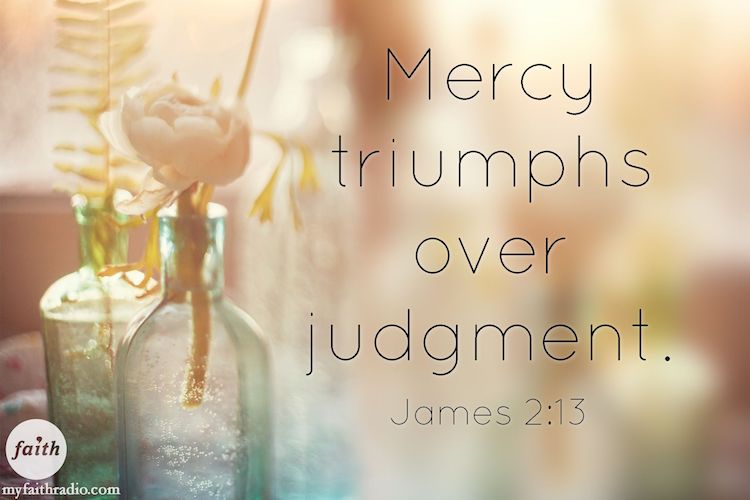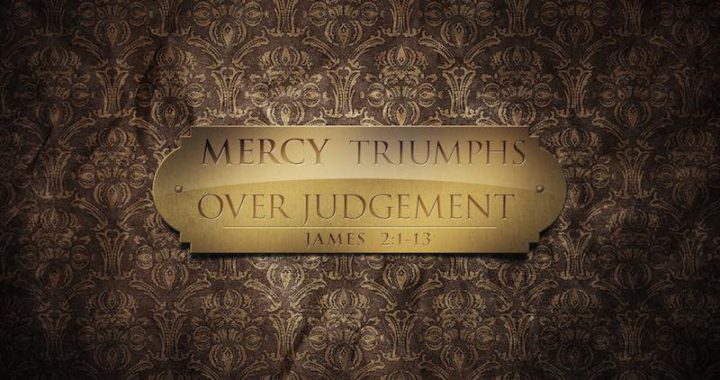One day when I was sixteen years old I was riding my bicycle on the street. As I was riding my bicycle, a car came alongside of me and the person in the passenger side of the car threw an object at me, striking me on my back. The car then sped away. The object was a plastic cassette jacket and it didn’t do any significant physical harm to me except for some minor pain but it was a senseless act and could have been dangerous. The two men in the car laughed as they drove away. It was obviously a senseless juvenile prank.
I have never been one to easily let go of wrongs committed against me, and so it was in this case. I felt violated and decided to try to get justice for the wrong done to me. I took notice of the make and model of the car along with several of the numbers on the license plate. I went to the local police station and filed a complaint. Nothing ever came of it but I felt somewhat vindicated.
A few months, some friends of mine and I took eggs onto our school bus and threw the eggs out of the school bus windows for fun as we drove down the highway. We were sixteen and were always looking for excitement in life. The egg that I threw just happened to hit the front windshield of a large truck. The truck driver ended up turning around and following our bus so as to catch the culprit, which was me. As a result of this incident, I had to pay $200 (USD) to the truck driver for the supposed damage to his windshield.
These two incidents provided a clear lesson to me at that time. When we are the victim we want justice but when we are the offender we desire mercy. When we are offended and we are treated in a manner that we think is unfair, we need to be careful with our judgment because in the way that we judge others we will be judged. This subject of judgment, mercy, and forgiveness is an area that we as human beings and believers in the God of the Bible need to understand well. This week’s Torah Portion provides a clear teaching about judgment, mercy, and forgiveness.
Joseph’s Plan
All eleven of Joseph’s brothers started to make their way back to the land of Canaan following a very blessed visit in Egypt (Gen. 43). After they were able to prove to Joseph that they were not spies but honest men by bringing their youngest brother Benjamin to him, they received their brother Simeon back in good health. Then they dined with this ruler of Egypt who had previously treated them harshly and they were now returning home with plenty of grain for their family together with their youngest brother Benjamin.
God’s favor seemed to be shining on them until Joseph’s steward met them outside the city and accused them of stealing Joseph’s silver cup. After a thorough search, the cup was found in Benjamin’s bag and the joyous mood quickly turned to anxiety and fear.
All eleven brothers returned to Joseph’s home to plead for mercy from this shrewd Egyptian ruler. The agreement was that if Joseph’s cup had been found in anyone’s possession, that person would become a slave to Joseph. Benjamin had been found guilty, although we know that the cup was purposely placed there by Joseph through his steward (Gen. 44:1-2).
When they arrived at Joseph’s house, Joseph spoke harshly to his brothers. Judah then stepped up to speak to Joseph on behalf of his brothers and submitted himself along with his brothers into the service of Joseph as slaves. Joseph, however, did not agree to this offer:
But he said, “Far be it from me to do this. The man in whose possession the cup has been found, he shall be my slave; but as for you, go up in peace to your father.” – Gen. 44:17
Joseph wasn’t interested in having all of his brothers remain with him, only his younger brother Benjamin. Benjamin was the only full brother of Joseph, the son of both his father and mother. Joseph obviously felt a special bond to his younger brother and wanted Benjamin to stay with him.
The Leadership of Judah
We only know as much as the text of the Bible provides for us, however, it appears that it was Joseph’s intent to have his younger brother remain with him while the other ten brothers returned to their father in the land of Canaan. It seems like Joseph had been plotting this from the very beginning, since the time that he first informed his brothers that they would not be able to buy any more grain in Egypt unless they brought their youngest brother to Egypt to prove that they were not spies.
Joseph’s plan seemed to have been working exactly as he had intended it but then we come to this week’s Torah Portion reading and Judah’s last stand. When all seemed to be lost and Joseph was demanding the life of Benjamin as his slave while setting the other brothers free, we read the following reaction from Judah:
Then Judah approached him, and said, “Oh my lord, may your servant please speak a word in my lord’s ears, and do not be angry with your servant; for you are equal to Pharaoh. – Gen. 44:18
Judah began by acknowledging and respecting the authority of this Egyptian lord. Judah then continued to explain a detailed account of what had transpired since they had first come into contact with this Pharaoh-like figure, who unbeknownst to them was Joseph. Judah ended his plea by offering his own life in service to Joseph in place of the life of Benjamin by explaining that he had made a promise to his father to protect the young man. It was at these words that Joseph became undone.
Joseph had been hiding his true identity from his brothers ever since they first came to Egypt. Joseph thought that he had his brothers exactly where he wanted them: he would keep Benjamin while the other brothers returned to their father. Everything had been falling into place but then Joseph lost control:
Then Joseph could not control himself before all those who stood by him, and he cried, “Have everyone go out from me.” So there was no man with him when Joseph made himself known to his brothers. He wept so loudly that the Egyptians heard it, and the household of Pharaoh heard of it. Then Joseph said to his brothers, “I am Joseph! Is my father still alive?” But his brothers could not answer him, for they were dismayed at his presence. – Gen. 45:1-3
Whatever Joseph had been planning for Benjamin and the rest of his brothers was totally set aside for the sake of being honest with all of his brothers and being reunited with them.

Joseph’s Brokenness
Joseph had sent all of his Egyptian staff out of his home so that he was left alone with his brothers when he revealed himself to them. From a broken and tender heart Joseph told his brothers “I am Joseph” but his brothers could not believer their ears. In their minds, their brother Joseph was dead (Gen. 44:20), but all of a sudden he was alive and standing before their eyes.
Approximately twenty-two years had passed since they had sold Joseph into slavery and now Joseph was ruling as a Pharaoh in Egypt. Joseph realized that his brothers were in shock at the news that he had shared with them and sought to help them process what was happening as they stared at him in bewilderment:
Then Joseph said to his brothers, “Please come closer to me.” And they came closer. And he said, “I am your brother Joseph, whom you sold into Egypt. Now do not be grieved or angry with yourselves, because you sold me here, for God sent me before you to preserve life. For the famine has been in the land these two years, and there are still five years in which there will be neither plowing nor harvesting. God sent me before you to preserve for you a remnant in the earth, and to keep you alive by a great deliverance. Now, therefore, it was not you who sent me here, but God; and He has made me a father to Pharaoh and lord of all his household and ruler over all the land of Egypt. – Gen. 45:4-8
Joseph spoke kindly to his brothers and set them at ease with these tender words.
Choosing to Forgive
After the initial shock of realizing that Joseph was actually alive, the brothers of Joseph probably felt great guilt and tremendous shame for what they had done to him by selling him into slavery. Joseph had every human right to be angry with his brothers, to despise them, to demand an apology from them, and to keep this matter over their heads so as to continually remind them of the wrong which they had done to him but instead he chose to forgive them.
Joseph was a ruler in Egypt, second only to Pharaoh himself. Joseph could have simply condemned his ten brothers to prison and thrown them into the dungeon as they had done to him. Joseph had all of the power in the world and he could have literally done whatever he wanted to his brothers but in this place of authority he simply chose to forgive.
In Joseph’s words to his brothers (Gen. 45:4-8), he did not ignore what they had done to him but neither did he hold it against them. Three times Joseph told his brothers that it was God Himself who sent him to Egypt with a specific plan: “God sent me before you to preserve for you a remnant in the earth, and to keep you alive by a great deliverance.” (Gen. 45:7) Joseph told his brothers that it was literally for their own benefit that God had sent him ahead of them to preserve life. Joseph understood how God had orchestrated all of these details, including the evil actions of his brothers against himself, in order to preserve life on the earth.
After Joseph and his brothers were reunitied, Joseph sent his brothers back up to their father so as to bring their father and all of the family down to Egypt to live as there were still five years of the famine remaining. Jacob came down to Egypt with his whole clan and lived before Joseph seventeen years before he died. Jacob died at the age of 147 (Gen. 47:28).
After their father Jacob died, Joseph’s brothers wondered if Joseph would take revenge on them for what they did to him in his youth. The brothers talked together and approached Joseph regarding this subject but Joseph again demonstrated mercy:
But Joseph said to them, “Do not be afraid, for am I in God’s place? As for you, you meant evil against me, but God meant it for good in order to bring about this present result, to preserve many people alive. So therefore, do not be afraid; I will provide for you and your little ones.” So he comforted them and spoke kindly to them. – Gen. 50:19-21
Joseph was still a man of authority in the kingdom of Egypt and he could have done whatever he wanted to his brothers, however, Joseph continued to choose the path of mercy and forgiveness. Joseph agreed with his brothers that what they did to him was meant for evil but Joseph focused on God’s greater intention for good.
Mercy Triumphs Over Judgment
Each one of us is continually faced with how we react to the words and actions which others speak and act against us. Every situation is unique and we need to be wise in how we respond. The words and actions of Joseph towards his brothers provide a powerful example of one who suffered much yet chose to forgive his offenders and show them mercy.
We need to be extremely careful regarding this subject of judging and forgiving others. Yeshua gave us the following warning in His Sermon on the Mount:
Do not judge so that you will not be judged. For in the way you judge, you will be judged; and by your standard of measure, it will be measured to you. – Matt. 7:1-2
Joseph understood this principle well and was wise in how he judged. He showed mercy to those who betrayed him. Joseph chose to forgive and remind his brothers that he was not in God’s place to judge them.

In another place in the New Testament we are challenged in our faith to err on the side of mercy:
So speak and so act as those who are to be judged by the law of liberty. For judgment will be merciless to one who has shown no mercy; mercy triumphs over judgment. – James 2:12-13
Every one of us wants to receive mercy but we are not always quick to show it. We need to be careful in judgment and always remember that God may have a greater plan than we could have ever imagined, just like He did in the case of Joseph.
Shabbat Shalom!
If you enjoyed reading this article, share it today with friends! We also invite you to sign up for our weekly Torah Portion commentary on the sidebar to the right.
Help keep our weekly commentaries free and available to all. Click here to donate today:
Torah Portion: Gen. 44:18 – Gen. 47:27
Haftara: Ezekiel 37:15-28
Return to Torah Portion Homepage
Copyright Jewels of Judaism. All rights reserved 2018



Thank you for telling us about mercy. It’s easy to condemn, without looking into the background of the matter, the hidden agenda, so to speak; could be the opposite of what we’re perceiving. I find myself doing it; judging before realizing that maybe a person is not intending to hurt me, maybe only wanting to tell me how he/she feeling about something I say or do. Misunderstanding is human, and paves the way for judgement in an instant. Mercy takes longer, but is releiving, for everybody.
Very true. Thanks Kristina